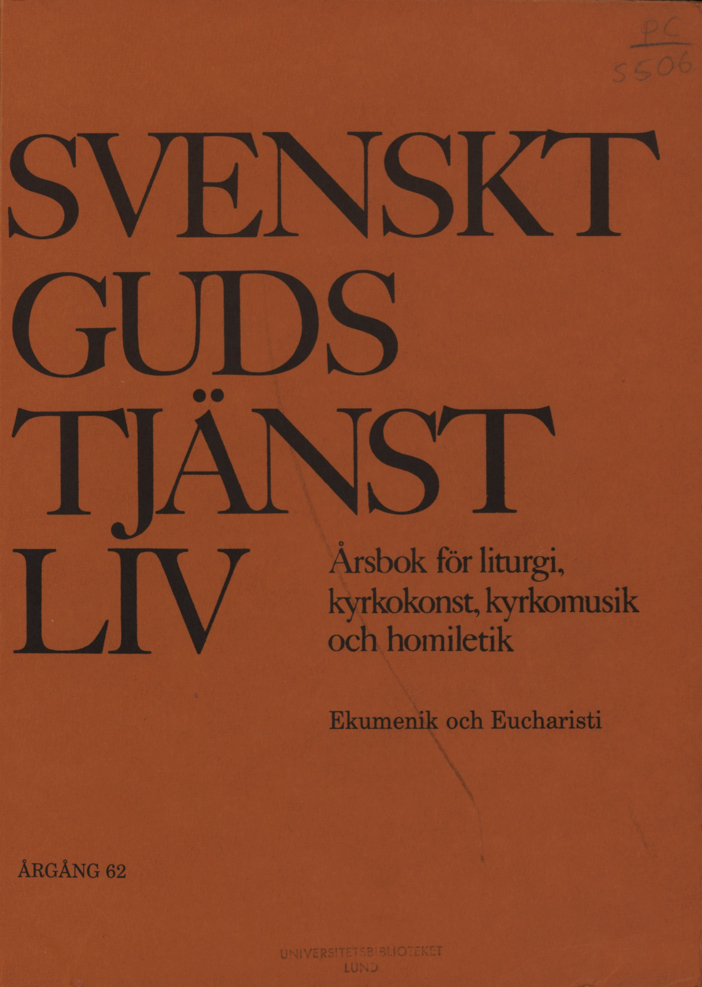Sju samfund - tre hand böcker - en gemensam nattvardsliturgi (Seven Denominations - Three Liturgical Manuals - One Ecumenical Liturgy of the Eucharist)
Abstract
This article deals with new liturgical books used in the free churches of Sweden. Special attention is given to the observance of the eucharist in an ecumenical perspective.
During the mid 80’s several new liturgical books have been issued in Sweden. As in the worldwide liturgical and ecumenical movement, the new manuals and hymnbooks represent a growing tendency to search for expressions which transcend and draw together various Christian traditions. This ecumenical expression is explicitly found in a new hymnbook for the Church of Sweden: The New Swedish Hymn Book (Den nya svenska psalmboken, 1986). The first 325 hymns are being used by fifteen separate churches/denominations. Nine free churches are using the same hymnbook, which includes the 325 “ecumenical” hymns plus another 425. This hymnbook is entitled: Psalms and Songs (Psalmer och Sånger, 1987), and contains still another ecumenical feature: a ritual for the eucharist. The ritual is on the whole identical with the new handbook for the Swedish Covenant Church/ Alliance Mission Church (Handbok till den kristna församlingens tjänst, SAM/SMF, 1983); it is also an alternative in the new ma nual of four Baptist denominations in Sweden (Till församlingens tjänst. Handbok för Fribaptistsamfundet, Helgelseförbundet, Svenska Baptistsamfundet och Örebromissionen, 1987).
The ecumenical liturgy of the eucharist has three alternative eucharistic prayers. The first prayer is from the new Manual of the Church of Sweden (Den svenska kyrkohandboken, adopted 1986); the second prayer comes from the new manual of the Methodist Church, adopted in 1986; the third prayer comes from Baptist tradition. Included in this article is a comparison and evaluation of the changes made in theology and liturgy by the Baptist, Covenant and Methodist Churches with reference to the eucharist. The discussion is centered around the main points in the BEM-document (Lima text, 1982).
The author analyzes the different liturgies of the eucharist in the three new manuals by the Covenant/Alliance, Baptist and Methodist Churches, stating that the most remarkable change is in the new handbook of the four Baptist denominations.
Within the concluding remarks the author draws forth the aspect of an urgent need for theological development which parallels that of the new practise, not only for clergy but for laymen as well.
Downloads
Published
Issue
Section
License
© the authors, Laurentius Petri Sällskapet för Svenskt Gudstjänstliv and Artos & Norma Bokförlag. Copying and using material from Svenskt Gudstjänstliv for scholarly purposes is permitted as long as the source is indicated. For other uses, please contact the respective author as well as the publisher. Special restrictions may apply to images.


